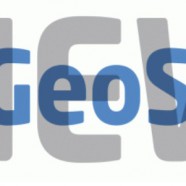A big step forward in strengthening science for society in Africa
PanAfGeo has achieved unanimous consensus: from feasibility study to project?
From the 8th to 10th February 2015, several fruitful workshops and bilateral meetings took place in Cape Town, South Africa, on the feasibility study, that has conceived PanAfGeo, an ambitious project, aiming at increasing knowledge and skills in African Geological Surveys.
PanAfGeo is focused on establishing long-term strategic cooperation in several areas such as governance of natural resources, sustainable exploitation of non-energy mineral resources, prevention and mitigation of natural and man-made disasters and support to the development of the local mining sector. PanAfGeo comes as a result of increasing cooperation between EuroGeoSurveys (EGS) and the Organisation of African Geological Surveys (OAGS), with the support of several key stakeholders such as the EC, AUC, UNESCO, UNECA/AMDC, UNDP and the World Bank amongst others.
The preliminary phase of PanAfGeo, a joint EGS-OAGS effort to produce a feasibility study, is now complete. During a series of workshops, the study underwent a full review from representatives of the African Union Commission, European Union – including DG GROW and DG DEVCO from the European Commission – UNESCO, Geological Society of Africa and several others, which expressed unanimous support for an implementation phase.
Mr Roeland van de Geer, Ambassador of the European Union to South Africa, declared “There is a need to overcome the disparities in Africa that are based on differed wealth, in strengthening the national institutions such as National Geological Surveys and the Organisation of African Geological Surveys”.
Africa is home to 30% of the world’s reserves of natural resources including several strategic and critical minerals. However its share of the global metal production is minor and has not developed largely compared to e.g. Asia or Latin America, whilst the world’s demand of minerals is still increasing. In this framework the African Geological Surveys can play an crucial role.
Mr Jonathan van Meerbeeck – Team Leader of Pan-African Programme, from the European Commission DG DEVCO – has highlighted the necessity to increase African GDP not only through better and safer exploration of the African mining capability, but also through an improvement of related tourism. Geoheritage in Africa, for instance, can contribute financially to the local communities, can increase the national GDP and help guarantee environmental sustainability. Only 5% of African GDP is produced by tourism. In this context the European Commission expressed its interest to provide significant funding towards the implementation of the project over a period of six years.
Full consensus has been also demonstrated by the 40 African Geological Surveys present, that believe sustainable development in all sectors can be possible only through strengthening science for society in Africa, as they have mentioned in their statement. Training improvements, sharing best practice and the introduction of innovative techniques are the starting points to reinforce skills and experience of the African National Geological Surveys.
The next step required is to gather the support of the African Union. Ms. Fatima Acyl, African Union Commissioner for Trade and Industry confirmed her great interest in the project, suggesting the need to follow the needed formal procedures, in order to brief the African Union member countries competent Ministers. In order to get their feedback, she has undertaken to try to organise an Extraordinary Ministerial Summit in September 2015 in order to seal their final approval.
In the meantime, the High Level Conference on ‘Infrastructures for Africa’ co-organised by the European Union and the African Union, to be held on Thursday 19th and Friday 20th March 2015 in Brussels, will include a specific session on geological infrastructures where the PanAfGeo project will be discussed.

